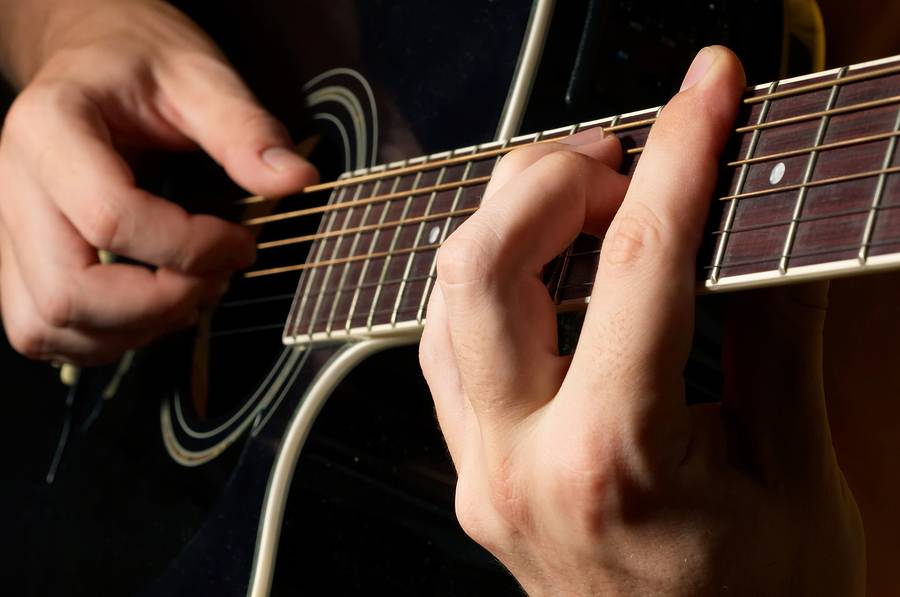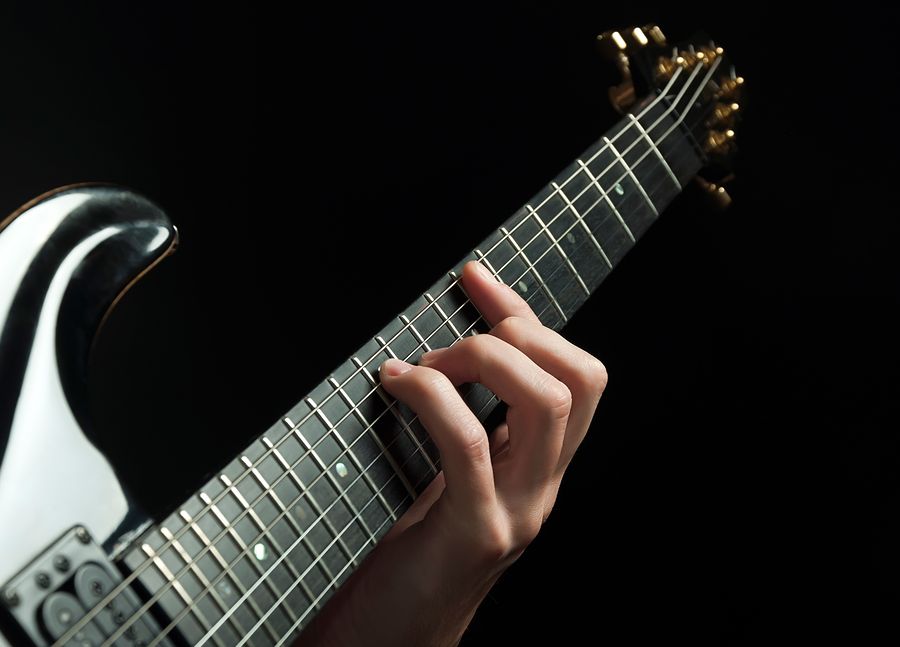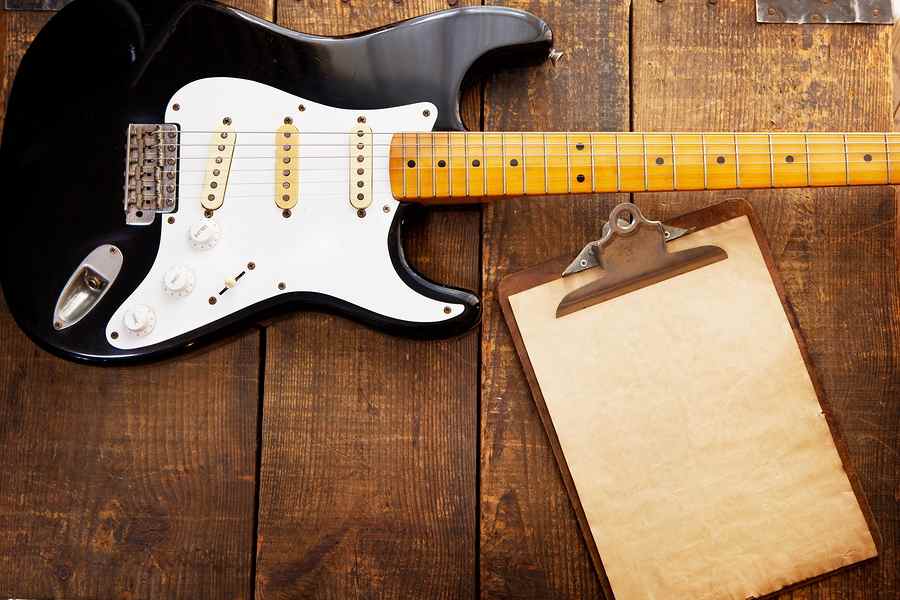
Once you know how to play open chords like C, A, G, E, D, Em, Am, Dm and different chord forms like sus2, sus4, dom7, min7, add9, etc, it’s time to learn barre chords, also known as bar chords.
Beginner students often ask if it’s really necessary to learn barre chords. Well if you want to become a better guitar player? Yes!
Although you can play lots of songs with just open chords, your playing will also be limited at the same time.
With barre chords you’ll have much more versatility in your playing. New doors will open and cool tricks will come out of the bag. Also switching between chords will become real easy and not to mention a lot of popular songs are played with barre chords.
Learning barre chords can be a little bit overwhelming at first, because they’re hard to play and probably won’t sound that great in the beginning.
When you play a barre chord you might not hear all the notes yet or even any notes at all, but regular practice will get you there. It will take time and effort, but it will pay off big time.
The barre chords are a lot more challenging but also a lot more beneficial, because you can move one barre chord shape all across the fretboard and play the same chord shape in 12 different keys.
I’ll tell you more about that in a minute.
Bar Chord Shapes
In this post I’ll show the four most essential barre chord shapes. While there are many other barre chord shapes, these are the ones that you will probably use most of the time. Also a lot of other barre chords are derived from these shapes.
Continue Reading Thought provoking questions can make you realize what you’re missing out on in life, what you are grateful for or what things are still left undone.
Thought provoking questions can make you realize what you’re missing out on in life, what you are grateful for or what things are still left undone. Whenever you try to deepen your guitar knowledge and you buy a guitar music theory book or look up something on the internet you keep bumping into the CAGED system.
Whenever you try to deepen your guitar knowledge and you buy a guitar music theory book or look up something on the internet you keep bumping into the CAGED system. I always have many things I want to learn, accomplish, try and experience.
I always have many things I want to learn, accomplish, try and experience.